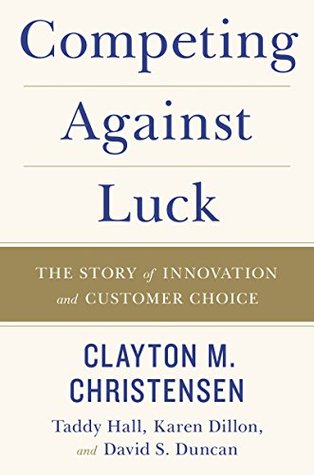More on this book
Community
Kindle Notes & Highlights
Read between
June 15 - June 29, 2025
We’re lost, but we’re making good time! —Yogi Berra
What job did you hire that product to do? For me, this is a neat idea. When we buy a product, we essentially “hire” something to get a job done. If it does the job well, when we are confronted with the same job, we hire that same product again. And if the product does a crummy job, we “fire” it and look around for something else we might hire to solve the problem.
somehow the same management team that had its act together at one point was out of its league at another.
even the best professional managers—doing all the right things and following all the best advice—could lead their companies all the way to the top of their markets and then fall straight off a cliff after arriving there.
I wonder what job arises in people’s lives that causes them to come to this restaurant to “hire” a milk shake?
“What social or cultural or political pressures exert influence?” And so on. Our notion of a circumstance can extend to other contextual factors as well, such as life-stage (“just out of college?” “stuck in a midlife crisis?” “nearing retirement?”), family status (“married, single, divorced?” “newborn baby, young children at home, adult parents to take care of?”), or financial status (“underwater in debt?” “ultra-high net worth?”) just to name a few. The circumstance is fundamental to defining the job (and finding a solution for it), because the nature of the progress desired will always be
...more
Netflix CEO Reed Hastings made this clear when recently asked by legendary venture capitalist John Doerr if Netflix was competing with Amazon. “Really we compete with everything you do to relax,” he told Doerr. “We compete with video games. We compete with drinking a bottle of wine. That’s a particularly tough one! We compete with other video networks. Playing board games.”


